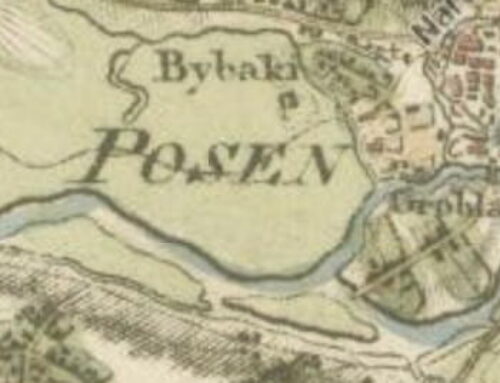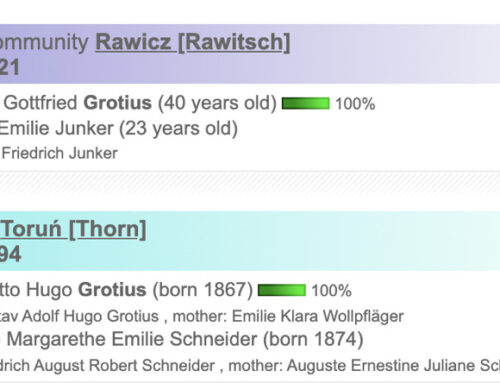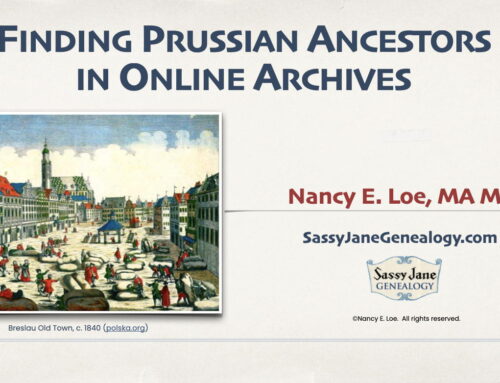Old German Professions Occupations and Illnesses is a RootsWeb resource that comes in handy as when translating parish records.
My own dear husband found for me in about six seconds of Google searching and it’s been very helpful in my recent Prussian research. (I think he got tired of me asking him to translate things. I guess what he learned when he was posted to Schweinfurt and Baumholder doesn’t necessarily translate to nineteenth-century genealogy records. It’s pretty obvious I don’t have even ein klein wenig of German, isn’t it?)
Today’s Follow Friday is a list of Old German Professions Occupations and Illnesses my own dear husband found for me in about six seconds of Google searching and it’s been very helpful in my recent Prussian research.
(I think he got tired of me asking him to translate things. I guess what he learned when he was posted to Schweinfurt and Baumholder doesn’t necessarily translate to nineteenth-century genealogy records. It’s pretty obvious I don’t have even ein klein wenig of German, isn’t it?)
 I’m new to this, so it took me a while (and some helpful reader comments) to see that my great-great-grandfather, Friedrich Schumann, had the status of an Ackerbürger, or citizen farmer. It’s consistent across records and now I know what the word means.
I’m new to this, so it took me a while (and some helpful reader comments) to see that my great-great-grandfather, Friedrich Schumann, had the status of an Ackerbürger, or citizen farmer. It’s consistent across records and now I know what the word means.





Hi Viktor:
Thank you very much for the confirmation. Ackerbürger did turn out to be correct for my great-great grandfather. I appreciate your help.
Hi
I am a familyresarcher from Germany and I think that I might know what you are looking for.
Your ‘example 2’ is really good and I can read
‘Ackerbürger’. But you might ask now what that precisely might be. As far as I know he was a farmer with the citizenship of a particular town he was living. So he had a farm in the border of the city. It is not a typical city job like shoemaker, goldsmith just to name an example.
Regards Viktor
What I have done in working with old german script is to take it to staples and have it enlarged. Then I use the LDS guide on Germany or German Script and compare the letters in the guide to the ones on the enlarged copy. It makes it a lot easier to read.
It looks like ACKER to me. Which would be those old farmer types again.
I’m glad it’s helpful, Diana. I was thinking about taking German, so I’m impressed that you’re actually doing it.
Thanks so much for sharing this link! I’m even taking a German class – but this isn’t what we learn in class :-)